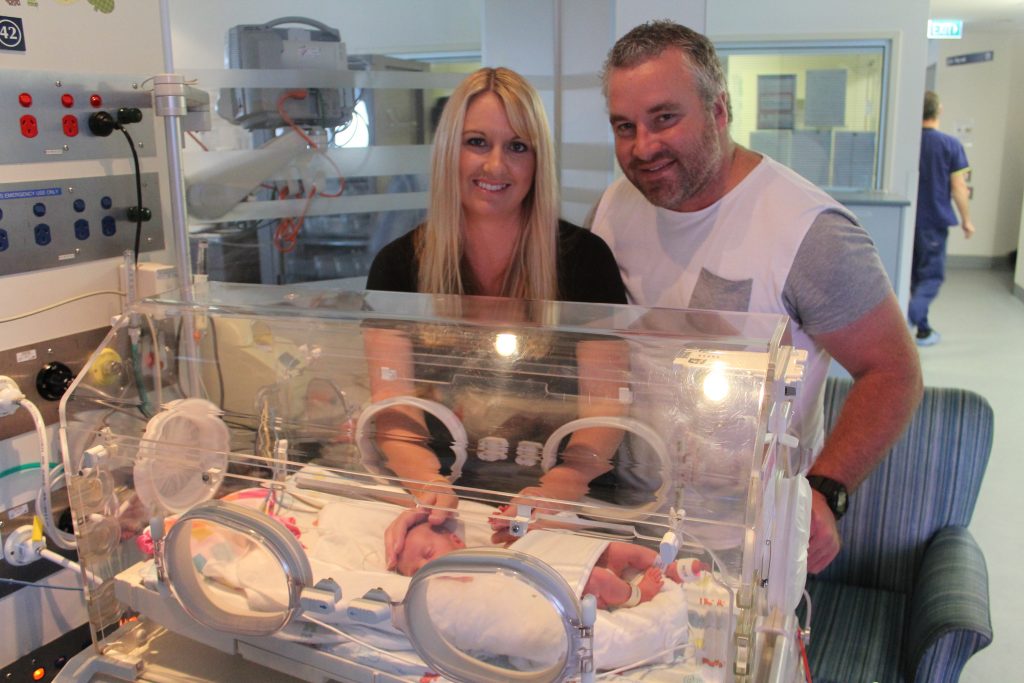
A simple bedside test for pregnant women to accurately predict early labour is under development at the University of Melbourne.
Researchers are working towards the affordable, painless and reliable test, that could be taken at 24-weeks pregnant, giving doctors a clear indication of risk of pre-term birth within days, or even weeks.
Scientists at the University of Melbourne’s Department of Obstetrics and Gynaecology at the Mercy Hospital for Women and the Royal Women’s Hospital are searching for the unique chemical changes that occur in a woman’s cervicovaginal fluid before she goes into early labour.
For more than a decade, obstetrician Doctor Megan Di Quinzio and senior scientist Doctor Harry Georgiou, have studied the changes in these ‘biomarkers’. Working together with Carmentix, a Singapore-based venture-backed company developing novel biomarker tests for preterm birth, they have narrowed it down to 10 biomarkers out of hundreds of potentials.
“Thousands of women who have had premature babies have volunteered for this study because they realise while it may not benefit them personally, it could really help families in the future,” she said.
“The site where these swabs were taken is very close to where the cervix ripens, matures, remodels and where the membranes thin and rupture before birth, so it’s right at the site of activity. That is where will find the answer.”
The test will most likely involve a vaginal swab, administered by a doctor or nurse. A sample of fluid taken from under the cervix would be tested for specific biomarkers.
“Our aim is to predict labour within seven to 14 days. Ideally, I would love to see this as a routine test taken during the highest risk stage of pregnancy, between 24 and 28 weeks.”
She said women could take the test multiple times throughout their pregnancy to determine their risk of a premature birth.
Being born too early accounts for 85 per cent of early infant deaths worldwide. Up to one in four early pre-term babies suffer chronic lung disease, impaired mental development, cerebral palsy, deafness, or blindness.
One in 10 births in Australia are premature, rising to 15 per cent in the indigenous population. Yet, researchers currently cannot accurately predict when labour will occur and it is symptom-free in 50 per cent of cases.
“There are women who come in contracting early who have been perfectly well throughout their pregnancy. They want to know why has this happened and the truth is often, we just don’t know why,” Dr Di Quinzio said.
“Pre-term birth doesn’t discriminate. It is the greatest burden is in the third world, where access to antenatal care is limited, but it can happen to anyone.”
Last reviewed January 29, 2018.




